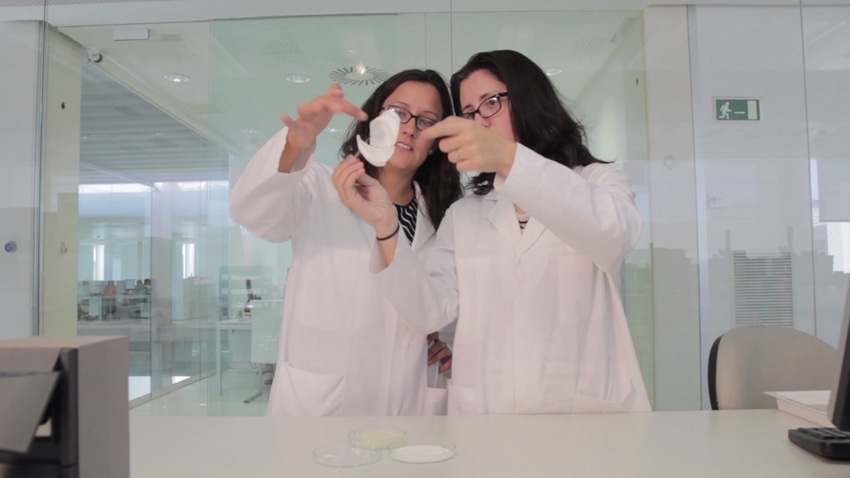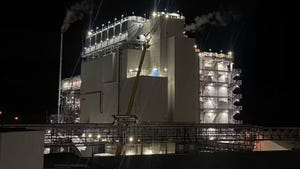Bioplastics becomes a juicy topic
April 8, 2016

On April 18, the Spanish technology center AINIA will organize, together with the European Fruit Juice Association (AIJN), an international workshop in Brussels on the present and future of bioplastics in the juice industry, at which among other things, the first prototype developed  within the scope of the EU-funded PHBOTTLE project will be presented. The PHBOTTLE project was initiated in order to explore the use of PHB biodegradable bioplastics derived from organic residues of the wastewater from the juice industry to develop a more sustainable packaging for fruit juice.
within the scope of the EU-funded PHBOTTLE project will be presented. The PHBOTTLE project was initiated in order to explore the use of PHB biodegradable bioplastics derived from organic residues of the wastewater from the juice industry to develop a more sustainable packaging for fruit juice.
Other speakers featured on the workshop program include a representative from Swedish multinational Tetra Pak, whose presentation will center on TetraPak’s 100% biobased carton called Tetra Rex, and Dutch multinational Avantium, who will discuss the development of its new biopolyester, called polyethylene-furanoate or PEF and its use in bottle applications.
Annually, the EU currently produces more than 67 million metric tons of packaging waste, of which about one-third is municipal solid waste. In developed countries, food packaging accounts for 60% of all packaging, becoming the main generator of waste. Hence, when it comes to developing more sustainable packaging, a lot is at stake.
 For this reason, the first wastewater-based PHBOTTLE prototype, the result of four years of R&D work, has already generated considerable interest. The PHBOTTLE project is a pioneer in its field, and uniquely contributes to the development of the concept of a "Circular Economy" in Europe in two ways. In the first place, food industry wastewater treatment is a costly process due to the energy needs in the aeration basin and the cost of waste sludge disposal. Recovering valuable materials from raw wastewater will therefore reduce treatment and disposal costs. Second, the use of biodegradable food packaging material will reduce energy use and carbon dioxide emissions, as well as reducing waste treatment costs.
For this reason, the first wastewater-based PHBOTTLE prototype, the result of four years of R&D work, has already generated considerable interest. The PHBOTTLE project is a pioneer in its field, and uniquely contributes to the development of the concept of a "Circular Economy" in Europe in two ways. In the first place, food industry wastewater treatment is a costly process due to the energy needs in the aeration basin and the cost of waste sludge disposal. Recovering valuable materials from raw wastewater will therefore reduce treatment and disposal costs. Second, the use of biodegradable food packaging material will reduce energy use and carbon dioxide emissions, as well as reducing waste treatment costs.
The project is being coordinated by AINIA and brings together an international consortium composed of the European Fruit Juice Association (AIJN), the companies Citresa (part of Suntory multinational), Logoplaste Innovation Lab (Portugal), Logoplaste (Brazil), Omniform (Belgium), Sivel Ltd (Bulgaria), and Mega Empack (Mexico), as well as the technology centers TNO (the Netherlands), Aimplas (Spain), and INTI (National Institute of Industrial Technology, Argentina).
Wastewater from the juice processing industry was chosen, because of the free carbohydrates, mainly fermentable sugars such as glucose, fructose or maltose, it contains. This wastewater can contain concentrations of fermentable sugars reaching 70% of the total organic load, making it an abundant source of cheap feedstock for PHB bioproduction. Why PHB? PHB offers a host of beneficial properties (moisture resistance, lower water vapor permeability, water insolubility, optical purity and good oxygen barrier), similar to fossil fuel-based plastic polypropylene (PP). However, it is also a stiff, relatively brittle material that is not easily injection molded. These are drawbacks that are being addressed within the scope of the PHBOTTLE project.
As fruit juices undergo oxidative reactions resulting in vitamin loss, packaging is needed that can withstand distribution loads and thermal treatments. The prototype PHB material was enhanced with antioxidants to prolong the shelf life of the juice. Further improvements were made possible by combining the latest advances in biotechnology, packaging and microencapsulation technologies.
This workshop is designed to allow PHBOTTLE project partners, as well as the other participants in the event, the opportunity to transfer the knowledge generated to the sector and to demonstrate how innovative and sustainable solutions can be incorporated in food packaging. Participants will discuss and assess the opportunities offered by new technologies and the development of new packaging materials derived from organic sources, as an alternative to petrochemicals.
WORKSHOP:
Biopolymers: Present and Future Direction
DATE: 18 April 2016
TIME: 09h00 – 14h30
PLACE: Silken Berlaymont Hotel, Boulevard Charlemagne 11, 1000, Brussels
This is a free entry event. To register, contact Lurdes Soares: [email protected]
About the Author(s)
You May Also Like


